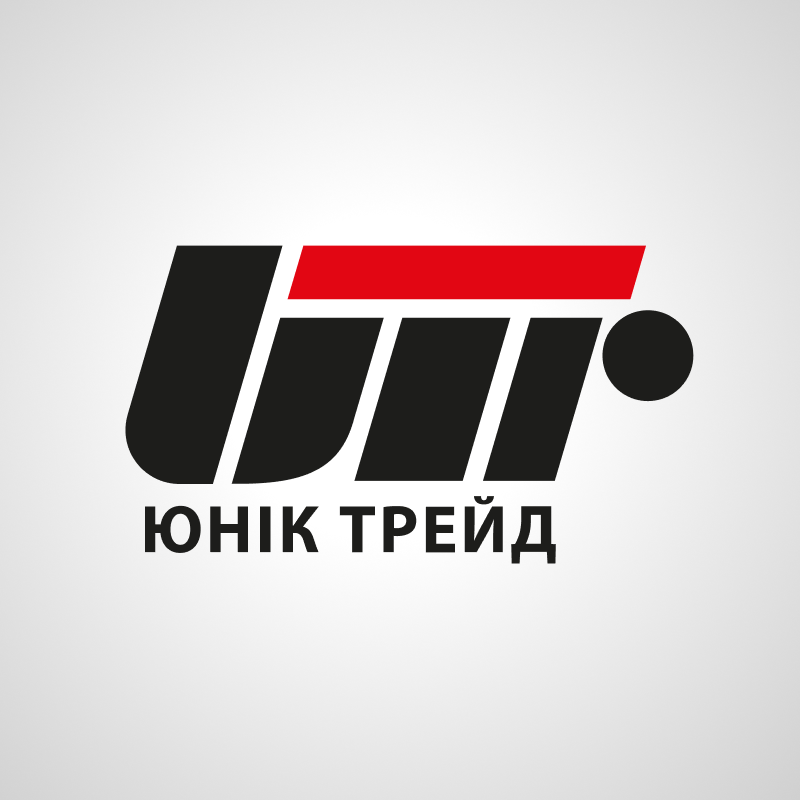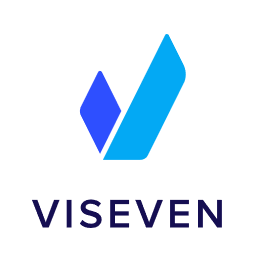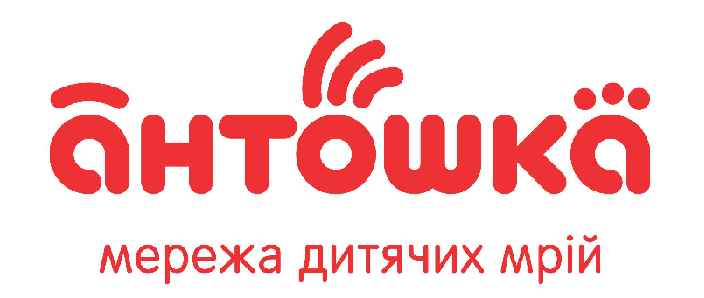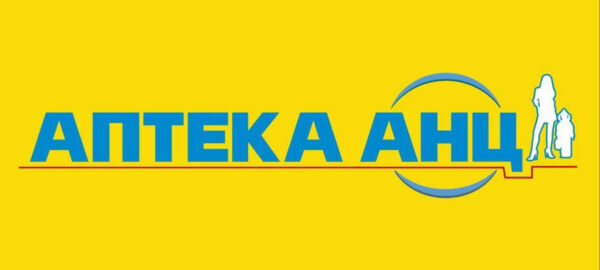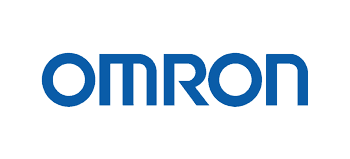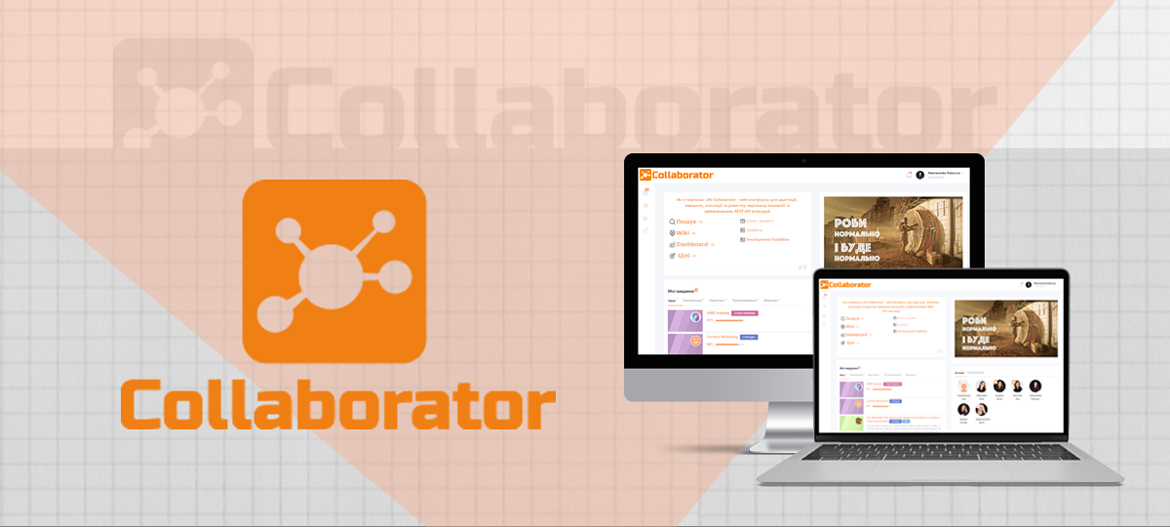
How does the LMS Collaborator team use its own system? Examples + own experience
Surely you, our readers, are used to the fact that in our blog we write about the cases of companies-users of LMS Collaborator: how they automate training processes, organize onboarding of newcomers, knowledge base, certification and development of employees, and other processes.
But what about us? Does our team use our own product for ourselves?
The answer is “Yes”, but there is a certain specificity of use that we will talk about.
Myroslav Botsula – CEO & Co-Founder LMS Collaborator, Founder El`Lab
 The staff of our team currently does not exceed 50 persons. Therefore, we do not have many business processes, as our customers with a large number of employees (from 100 to 20,000 users), to help which the LMS Collaborator platform is focused. At present, everything is somewhat simpler, but in matters related to information, accumulation and development of knowledge, certification, management by objectives, we apply our own product.
The staff of our team currently does not exceed 50 persons. Therefore, we do not have many business processes, as our customers with a large number of employees (from 100 to 20,000 users), to help which the LMS Collaborator platform is focused. At present, everything is somewhat simpler, but in matters related to information, accumulation and development of knowledge, certification, management by objectives, we apply our own product.
The main thing, to my mind, is the formation of the Knowledge Base.
In LMS Collaborator, this functionality is the basis on which the ideology of the system is built. As business processes develop, we fill our platform with policies, rules, descriptions for our company and update them as needed. This becomes a material for training newcomers and improving each of us.
Some of our business processes require regular reports and checks. For example, it is a monthly check of software updates, compliance with cybersecurity requirements. LMS Collaborator functionality helps us organize and conduct these activities remotely and asynchronously, effectively saving everyone’s time..
In addition, we fill our Collaborator with training courses and other resources on Hard and Soft Skills that each of us can use to improve our professionalism.
There are plans to introduce the process of “preservation and transfer of knowledge”. This is when each team member, after external or independent learning in their area of activity, prepares a short “synopsis” of the most important things they have learned that have significantly improved their work. This type of summary is organized into a learning resource and added to the Knowledge Base. It is not easy, but we have been partially doing it for the second year and I have seen that it helps us to change and grow.
How LMS Collaborator team uses its product
1. Login with SSO (Single sign-on)
We are standing for the convenience and security of authorization, so SSO – a single sign-on technology – is implemented for all corporate systems.
SSO does not require constant authentication of employees if they move from one system, service or application of the network to another. Employees are authenticated at only one point of entry into the system. After passing it, they get access to the sections and services open to them, that is, they do not need to re-enter credentials to open a new system.
What is it for?
Remembering dozens of passwords is difficult, and it can also have a bad impact and consequences for the company’s information security. SSO technology helps to link all employee’s work accounts in corporate systems and thus simplify authorization.
LMS Collaborator also supports single sign-on technology. Therefore, all our customers can set up SSO to their learning portal.

2. Training and onboarding of employees
Like our clients, we use LMS Collaborator to train our employees. When a newcomer joins the company, he or she is immediately assigned a training course to get acquainted with LMS Collaborator, as well as activities related to their area of work. For example, Katya (LMS Collaborator content manager, whose articles you read in the blog) on her first working day got access to the courses on content creation and writing texts.
We also support the knowledge of our employees. When interesting topics or ideas appear, we form training materials from them and assign them to our team. These can be specialized courses for general development and mandatory courses related to company policy. For example, our team is currently undergoing a training cycle on information security, and all training materials and activities on this topic are taken from the Knowledge Base on the LMS Collaborator portal.

When we conduct learning webinars or trainings, we always record them and create a training course from it. The last such webinar was an internal training on information security. After the training, the recording was available to all team members. Those who were unable to attend the webinar were assigned a task to review this recording on the LMS Collaborator portal.
3. Checklists for checking compliance with processes
We ensure that our employees comply with information security rules. Every month we have regular control to update the software, security systems, browser, etc. For this purpose, we use LMS Collaborator checklists. Each employee marks in the checklist the fact of compliance with the rule, and also adds screenshots to confirm it.

4. The company’s knowledge base
Our company practices the maintenance of the acquired knowledge within the company. When our employees take interesting external courses or attend a webinar, they share the most important points with the team. All the knowledge gained is recorded in the form of resources that are publicly available in the LMS Collaborator Knowledge Base. Everyone can view them and learn something useful for themselves.
The Knowledge Base also contains our corporate library with books that our employees can read in their free time.

In addition to the corporate knowledge base, we also actively maintain our wiki encyclopedia. It contains a description of our business processes and important information that is necessary in our work. If an employee is looking for the information he needs, he can use the wiki at any time and find the answer there.

5. Planning MBO objectives
MBO is one of the most effective catalysts for business development. At the beginning of each year, each manager and his team define strategic business goals for the year and make a plan to achieve them. This is an important process that requires detailed discussion, time for planning and coordination.
To work with OKR, we use the goal management functionality in LMS Collaborator. It helps us manage our goals, as well as organize the processes of monitoring and evaluation. Everything is convenient, clear and in one place. Each employee has access to view the goals of colleagues, which allows everyone to see the result of joint work.
All objectives are gathered in a tree. Each of them is assigned a supervisor who monitors its implementation and evaluates the result. Setting KPIs helps to make a plan for achieving the goal, and weighting helps to prioritize the implementation.

Conclusion
Now you know how our LMS Collaborator team uses its own product. With the help of the LMS Collaborator platform we automate and improve the processes of onboarding, training, regular checking, creating a corporate knowledge base, and maintaining focus on strategic goals.
We are growing and gradually starting to use more features of our own platform. This small part of the features that we can effectively use in our small team gives the basis for further growth. And when we become as big as our customers, we will be able to use all the other features of LMS Collaborator on our own experience.
For now, we listen carefully to our customers, gain new experience together with them and do everything to ensure that our platform effectively helps their business. At the end of 2022, even despite all the difficulties that the occupying country has created for all of us, about 100 companies in Ukraine are working with us. The trust and partnership of our clients is the best proof that we do our job well and it is necessary.
If you want to try LMS Collaborator – submit your application. Our managers will provide you with trial access to the learning platform, advise on the best set of functions to solve your tasks and help you at every step.
Implement corporate training with LMS Collaborator!





